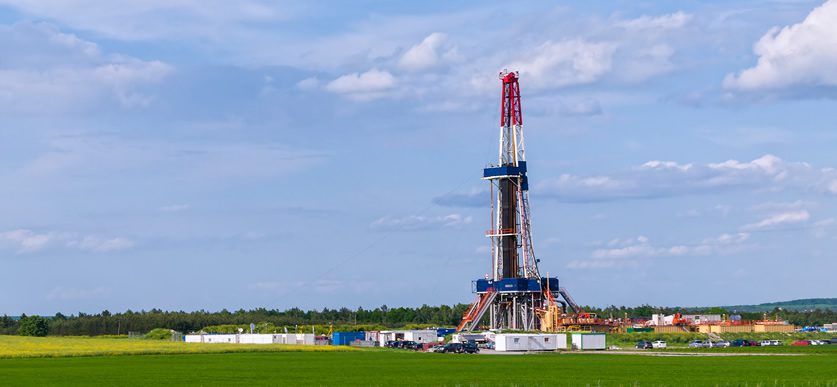
The amount of shale gas in the UK may be significantly less than what was previously estimated, according to a new study.
New research from the University of Nottingham suggests that at the current rate of consumption, fracking can produce just 5 to 7 years’ worth of the UK’s gas supply. It was previously believed that up to 50 years’ worth of gas consumption could be produced by fracking.
A previous study by the British Geological Survey (BGS), published in 2013, suggested that the Bowland Shale – a huge geological formation under large parts of northern and central England – contained around 1,300 trillion cubic feet of shale gas. This would make it one of the largest shale gas reserves in the world. However, this latest research used a new method to calculate the amount of gas in the shale and its estimations are much lower.
“We have made great strides in developing a laboratory test procedure to determine shale gas potential,” said Professor Colin Snape from the University of Nottingham, author of the report. “This can only serve to improve people’s understanding and government decisions around the future of what role shale gas can make to the UK’s energy demand as we move to being carbon neutral by 2050.
“In terms of the total gas in place, the mean value from the 2013 study was 1,300 trillion feet of gas, we are struggling to get anywhere above 200 trillion feet. The data we’ve got from the two shales we’ve looked at are very consistent – and gas companies Cuadrilla and Third Energy have just published two papers in the last year where they have taken core samples and measured the gas that’s evolved and that data is very, very consistent with our own data.”
However, the fracking industry in the UK has largely refuted the new study, claiming the sample sizes used by the research group were too small to be produce an accurate outcome.
“Those involved in publishing this should be embarrassed,” said Francis Egan, chief executive of gas exploration company Cuadrilla. “We hold more data and technical experience of the Bowland shale than anyone else in the UK yet not once did anyone from this research group or Nottingham University contact us for our view or input.
“Cuadrilla is getting on with determining the capacity of UK shale reserves by the only means possible which is to drill, hydraulically fracture and test the flow rate of gas from real world wells drilled into the shale rock. Our early results are very encouraging.”
Professor Mike Stephenson, chief scientist for decarbonisation and resource management at the BGS, said: “Early indications published today suggest that it is possible there is less shale gas resource present than previously thought. However, the study considered only a very small number of rock samples from only two locations. BGS has continued to study resource estimation in shales over the past 16 years and further studies are still required to further refine estimates of shale gas resources.”
Fracking works by pumping liquid underground at high pressure in order to fracture the rock and release gas. However, it has been a highly contentious issue in the UK in recent years due to fears over earth tremors and general public opposition.




